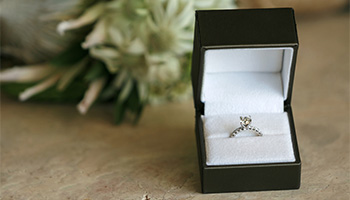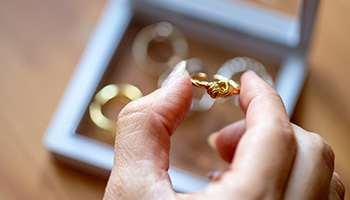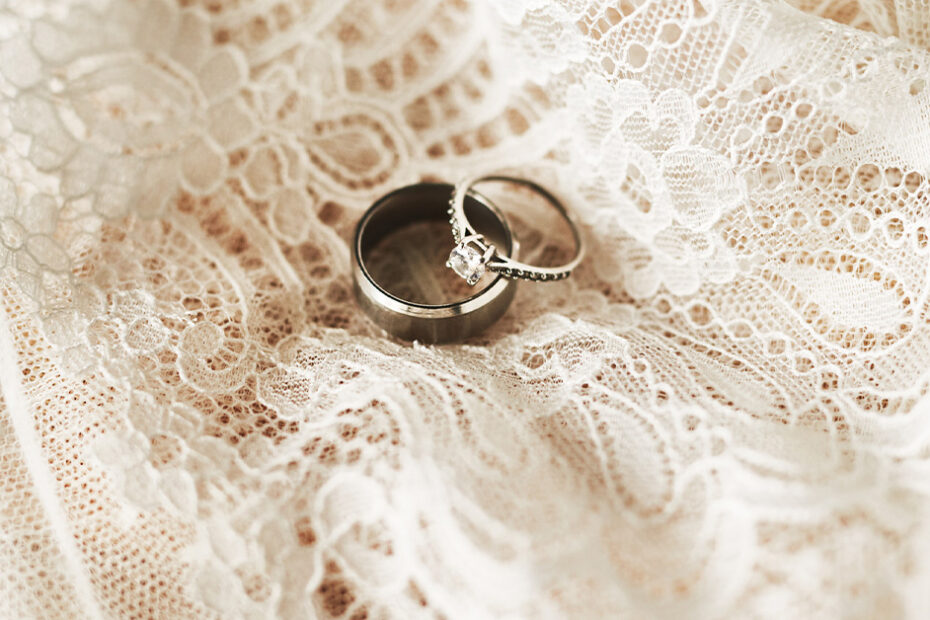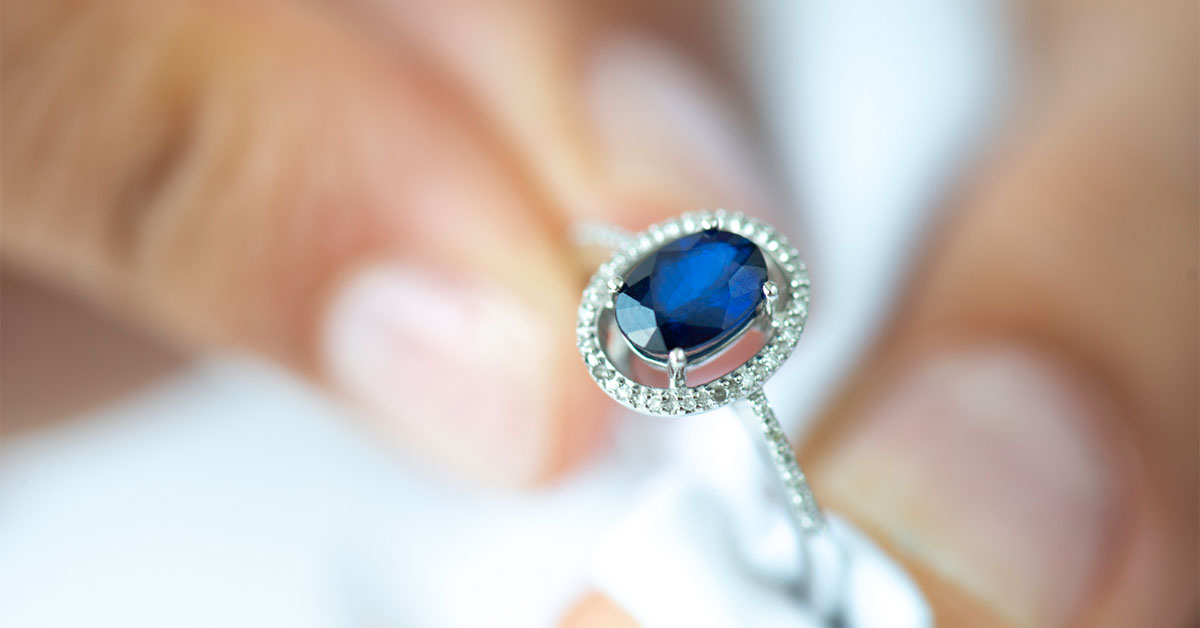From engagement rings to family heirlooms, the jewelry pieces we carry hold immense sentimental and financial value that is irreplaceable. However, even with such value, many people don’t often take complete steps toward securing their cherished jewelry. Although home and renters’ insurance can provide some coverage towards your personal property, those coverage amounts are often insufficient if you’ve lost your wedding ring. To help you better protect your jewelry or other valuables, let’s cover some essential basics of jewelry insurance that you should know.
Does My Homeowners Insurance Cover a Lost Wedding Ring?
Standard homeowners, renters, and condo insurance policies will typically provide some coverage for your jewelry underneath your personal property coverage. However, most residential insurance policies have limits for jewelry pieces like wedding rings. Additionally, note that the jewelry coverage limit will apply to your entire collection, not just a specific piece.

Although each policy is unique, typical limits tend to be around $1,500, according to the Insurance Information Institute. If you lose your wedding ring and it is worth more than that, you’ll have insufficient coverage to replace it even before any plan deductibles are applied.
Protection through your homeowner’s insurance will only be adequate if you own a small collection worth less than your policy’s sublimit. For more expensive items, consider purchasing jewelry insurance.
How Does Jewelry Insurance Work?

For more expensive jewelry pieces, such as a lost wedding ring, it’s recommended that you purchase a stand-alone jewelry insurance policy from a provider such as Jewelers Mutual. Purchasing a stand-alone policy can have the following benefits:
- Greater range of coverage, including accidental loss or damage.
- Coverage for complete set items.
- Access to a network of reliable jewelry professionals in the event repair/replacement is needed.
- Appraisal adjustments to ensure your piece is always insured for its true value.
- International coverage.
Insurance policies can vary depending on your provider, but premiums can start as low as 1-2% of your jewelry’s value. For example, if your wedding ring is worth $5,000, it could cost you around $50-100 a year to insure.
How Are Jewelry Insurance Coverage Limits Set?
To set your jewelry insurance coverage limits, you’ll need to have your piece appraised. This will determine the value of the entire wedding ring, including its setting and any stones. It’s important to seek an accurate appraisal from a trusted jeweler to ensure you have the right amount of coverage in case you lose your wedding ring.
Most providers offer policies that will repair or replace your lost or damaged ring with “like kind and quality” items. This means you run the risk of not receiving a piece that is comparable to the original. With Jeweler Mutual, our jewelry insurance partner, your policy will provide replacement options using items of the “same kind and quality” to ensure you receive a replacement that closely resembles the original as much as possible.
Reliable Coverage for Your Wedding Ring
AIS partners with Jewelers Mutual to offer our customers reliable insurance policies for their most cherished items. With over 110 years of experience, Jewelers Mutual can help you find the coverage you need to protect your collection without breaking the bank. To learn more about how AIS can help get you covered with Jewelers Mutual, give us a call today at (888) 772-4247.
The information in this article is obtained from various sources and offered for educational purposes only. Furthermore, it should not replace the advice of a qualified professional. The definitions, terms, and coverage in a given policy may be different than those suggested here. No warranty or appropriateness for a specific purpose is expressed or implied.


